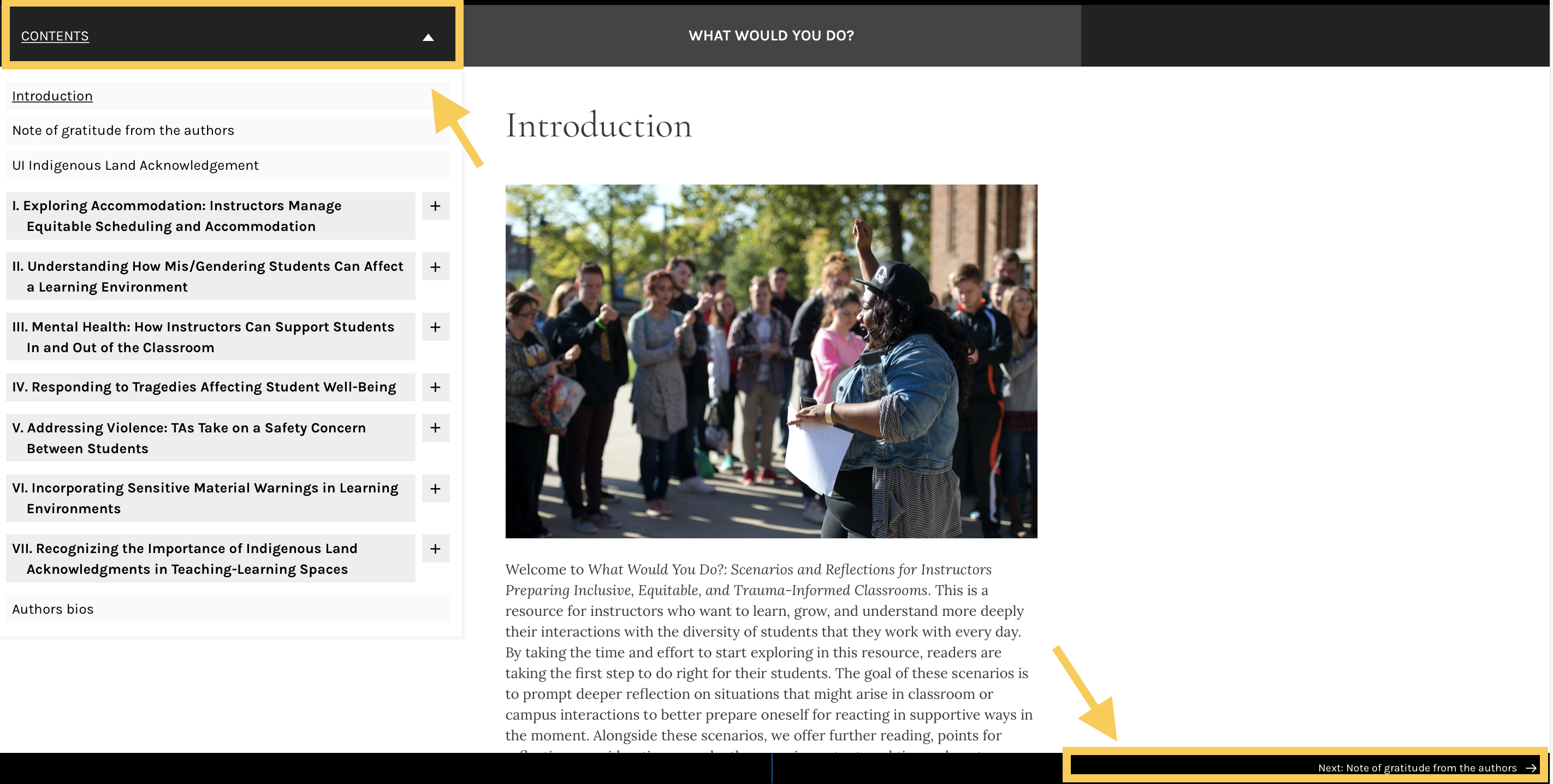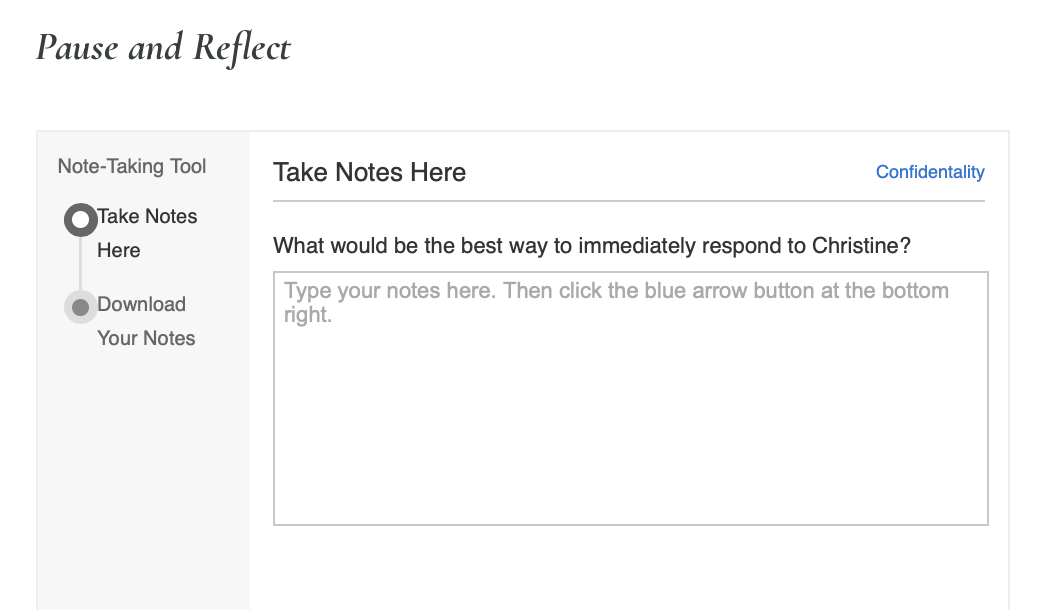Introduction

Welcome to “What Would You Do?: Scenarios and Reflections for Instructors Preparing Inclusive, Equitable, and Trauma-Informed Classrooms.” This is a resource for instructors who want to learn, grow, and understand more deeply their interactions with the diversity of students that they work with every day. By taking the time and effort to start exploring in this resource, readers are taking the first step to do right for their students. The goal of these scenarios is to prompt deeper reflection on situations that might arise in classroom or campus interactions to better prepare oneself for reacting in supportive ways in the moment. Alongside these scenarios, we offer further reading, points for reflection, considerations on why these are important, and tips on how to navigate sensitive interactions. These scenarios were inspired by different areas of student perspectives and developed by students who study and value the varying frameworks of diversity, equity, and inclusion.
This resource was crafted in fall 2022 by GWSS (Gender, Women’s, and Sexuality Studies) practicum students with the University of Iowa Center for Teaching, and we want to recognize that over time, language changes and so does our understanding of varying topics and identities. The language used in this resource aims to be as inclusive and inviting as possible, but even if/as terminology changes, we hope the scenarios and reflection questions presented will be somewhat timeless in helping instructors prepare for situations where they can enact their values of equity and inclusion.
In creating this resource, we aim to provide an approachable (and maybe even fun!) setting to interact with real-world scenarios before or as they happen in your classrooms. There are spaces to brainstorm what you might say or do in certain situations, questions for personal reflection and resources that can aid you in moving forward. Each scenario is unique, but presents a topic followed by prompted reflection questions, takeaways, and resources for further reading. We want to underscore the fact that there often is no one right way to deal with sensitive interactions, but it is our hope that the tools and techniques provided can be accessible and helpful for responding in ways that are supportive. Feel free to carve your own path through these scenarios, taking your time to enjoy and really sit with what’s offered.

Please engage with the scenarios and take notes in the Note Sections. Other readers, authors of the book, and network administrators will not have access to your notes, these are for your private use. They can be also downloaded.

